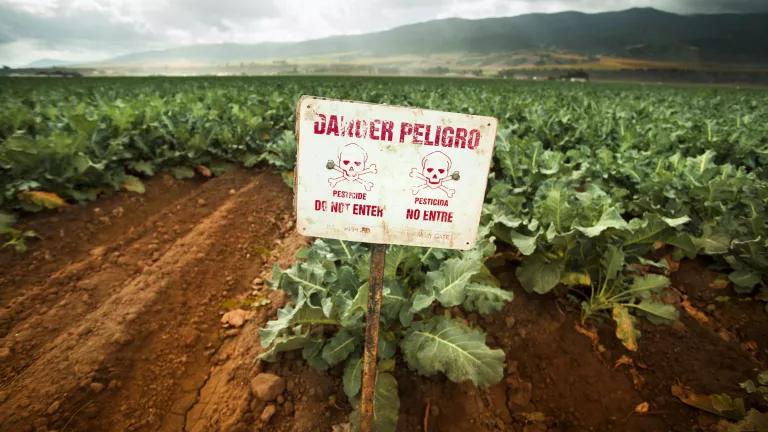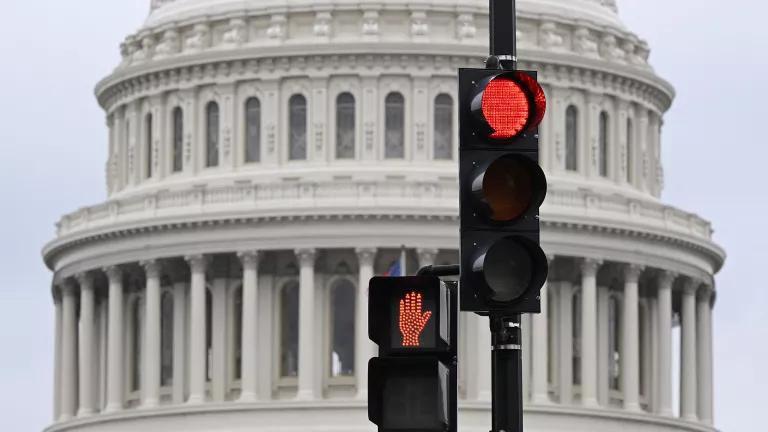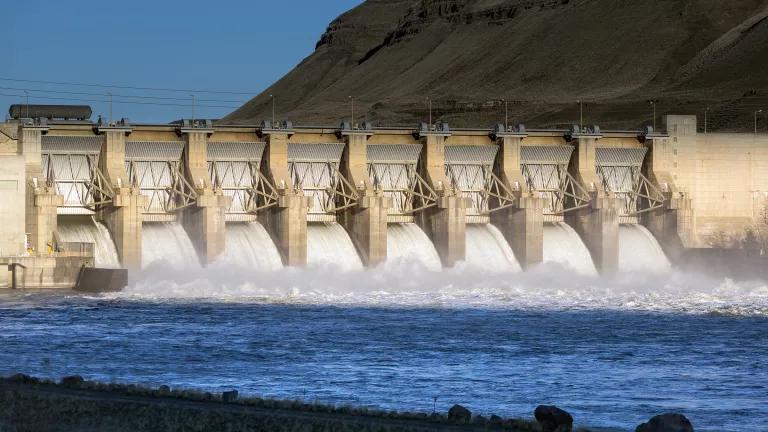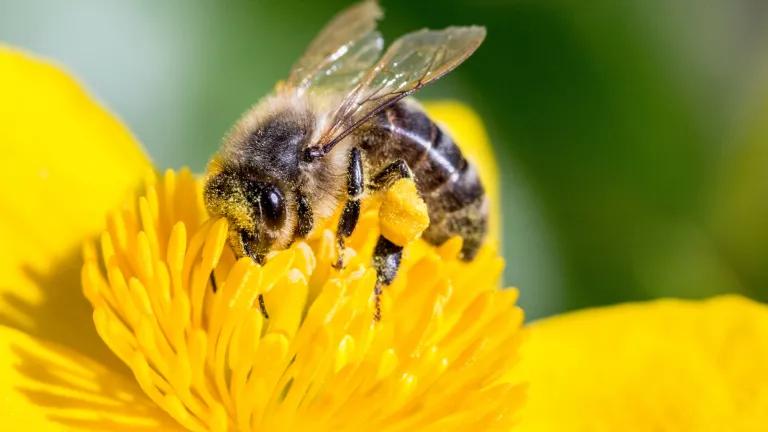10 Things I Hate About You (House Majority Farm Bill)
NRDC’s analysis lays out the worst of the worst that this Farm Bill has to offer, from undermining historic climate funding to compromising food security and weakening species protections.

iStock
UPDATE (May 24, 2024): Today, a deeply flawed Farm Bill (H.R. 8467) was approved in the dead of night by the House Agriculture Committee. Despite the bill's numerous problems—undermining environmental protections and jeopardizing food security—Democrats stood united behind an amendment to preserve the vital climate-smart agriculture funding provided by the Inflation Reduction Act.
At the end of the day, this bill as written will never become law. The funding mechanism is budgetary fantasy, with the Congressional Budget Office estimating it will add upwards of $37 billion to the deficit. This Monopoly Money approach to policymaking jeopardizes any serious legislative effort.
Looking ahead, NRDC urges lawmakers to start over and engage in meaningful discussions, following the Senate’s lead for a bipartisan Farm Bill that truly supports farmers, families, and the environment.
1. Undermines historic investments in climate-smart agriculture
The partisan House proposal eliminates the climate guardrails in the Inflation Reduction Act and destroys our nation’s ability to meet the moment of our climate crisis—turning back the clock on climate action.
2. Worsens food insecurity, cutting SNAP
Let’s call it what it is: This bill is a major hit to hungry people and our historic commitment to addressing food insecurity. This $30 billion cut to the Supplemental Nutrition Assistance Program is bad for the prosperity of our nation, and it destroys the bipartisan coalition needed to get the Farm Bill over the finish line.
3. Sacrifices health for profits: a chemical betrayal
The chairman’s mark of the Farm Bill not only misses the mark but it obliterates vital protections with catastrophic indifference to public health and the environment. By attempting to strip local governments of their authority to regulate pesticides, this bill would leave communities defenseless, unable to enforce safeguards around schools, parks, and ecologically sensitive areas where our children and wildlife are most vulnerable. Worse still, the bill would insulate Big Ag from any liability stemming from its toxic products. Lawsuits have forced multinational pesticide manufacturers like Bayer, the maker of cancer-causing glyphosate, to compensate pesticide-exposed victims billions of dollars. But this Farm Bill provision would allow Bayer and others like it a license to poison with impunity.
This bill also undermines the Endangered Species Act safeguards intended to protect our nation's imperiled plants and wildlife from toxic pesticides. And it shifts the balance of power, placing pesticide policy firmly in the hands of those it benefits most—the pesticide industry—while the health of our communities and the environment hangs in the balance. This is not just regulatory rollback; it's a full-scale assault on the protections meant to ensure the safety and well-being of our society and the planet. It’s clear the overall approach of the House Farm Bill not only sidelines crucial environmental considerations but also prioritizes industry profits over the health and safety of people and the planet.
More than 140 national, regional and state-based organizations just joined a letter opposing these provisions in the House Farm Bill. And, more than 140 mayors, lawmakers, and other officials from more than 30 states, organizations representing state and local elected officials, hundreds of members of the House of Representatives, and 20 senators are standing together to urge Congress to reject legislation that would limit long-standing state and local authority to regulate pesticides.
For more information, see my colleague Lucas Rhoads’s blog “Four Ways the House Farm Bill Would Weaken Pesticide Protections.”
4. Attacks the Endangered Species Act (ESA)
This bill includes two pieces of legislation that would weaken ESA protections: H.R. 200 and H.R. 2989. Specifically, H.R. 200 seeks to exempt the Forest Service and the Bureau of Land Management from the regulatory requirement to reinitiate consultation under Section 7 of the ESA, when new data suggests that existing land management plans may be causing unforeseen harm to threatened or endangered species. Furthermore, H.R. 2989 would exempt certain logging and forestry projects in sequoia groves without prior ESA consultation, presumptuously declaring that all such projects are beneficial for the health and resilience of critical habitats. This pre-emptive exemption undermines the ESA's foundational process of ensuring that federal actions do not jeopardize the survival of any species or the integrity of their critical habitats. Given that the wildfire crisis and other environmental threats continue to endanger hundreds of species, bypassing these crucial consultations could lead to irreversible damage across vast areas of federal lands that provide critical refuges for America's wildlife.
Sixty-five organizations joined a letter to House Committee on Agriculture leadership opposing these provisions of the bill.
5. Attacks the National Environmental Policy Act (NEPA)
This bill proposes significant changes to NEPA that would drastically reduce environmental oversight. Specifically, it seeks to expand three existing categorical exclusions (CEs) for forest management projects from 3,000 to 10,000 acres. This expansion would minimize necessary environmental reviews and public input for large-scale projects that could have profound impacts on communities and the environment. Additionally, under the guise of protecting giant sequoias, new CEs would allow for logging and other damaging projects to begin and conclude before environmental analysis is done. Such changes would undermine NEPA and risk significant ecological damage.
Sixty-five organizations joined a letter to House Committee on Agriculture leadership opposing these provisions of the bill.
6. Defies climate science in the biomass rider
The proposed forest biomass language (Section 12417) in the Farm Bill would declare—by legislative fiat and in stark juxtaposition to the stances of numerous scientific authorities—that woody or forest biomass and related facilities have a greenhouse gas emission rate or carbon intensity of zero or less and are presumptively carbon neutral. This language defies climate science and would place many rural communities at risk. In the southeastern United States, where most pellet mills are located, these facilities are 50 percent more likely to be in communities of color with high poverty. Intensification of harvests can also impair forest health and resilience. Instead, government policies should be based on accurate accounting of the life cycle climate impacts of biomass.
More than 130 national, regional, and state-based groups joined a letter in opposition to this provision.
7. Sabotages affordable rural clean energy deployment
In the Energy Title, Section 9007 would effectively change the Rural Energy for America Program's (REAP) objective from improving access for cleaner energy and energy efficiency to arbitrarily pushing for technologies and products that may not serve participating communities. The U.S. Department of Agriculture (USDA) already has a system for determining which projects provide the best merit; this provision could upend that and replace it with a system where industry drives what the USDA must support.
In addition, Sections 9015 and 9016 in the House bill would undermine USDA support for rural clean energy by blocking assistance for ground-mounted solar energy systems within very broadly defined “covered farmland.” While there are exceptions, these sections are designed to maximize red tape—specifically for solar projects. They ignore the very real trends of increasing paving and urbanization of farmlands in favor of political attacks.
8. Misses opportunity on crop insurance and commodities
Crop insurance is a critical safety net for farmers, but this bill doubles down on large payments to farmers without protecting the system from the ravaging impacts of climate change. This is more than a missed opportunity to help crop insurance evolve on addressing climate and promoting soil health. The bill provides unprecedented payments for specific crops without any consideration to soil health, climate, or resilience and deepens inequality in our food system by promoting unsustainable farming practices.
9. Plays monopoly money with the Farm Bill
The math of the draft House Farm Bill just doesn’t add up. The House Agriculture Committee majority staff claimed $53 billion in savings from policy suspensions, but the Congressional Budget Office estimates only $8 billion, revealing a $45 billion funding gap. The proposal isn’t a budget gimmick—it is a farcical approach to legislation that undermines our ability to get a Farm Bill done. The House Agriculture Committee majority is operating like self-appointed monopoly money bankers on their quixotic quest to distort the farm economy. The bill is “paid for” with a policy provision that prevents the USDA from addressing high priorities by eliminating its authority under the Commodity Credit Corporation.
10. Creates a smorgasbord of missed opportunities
As the Senate Farm Bill proposal makes bipartisan advances on issues like food waste, soil health, climate resilience, agroforestry, expanding organic, and commitments to new and beginning farmers, the House Farm Bill falls short on these policies—barely dedicating any resources to these new and emerging priorities.



